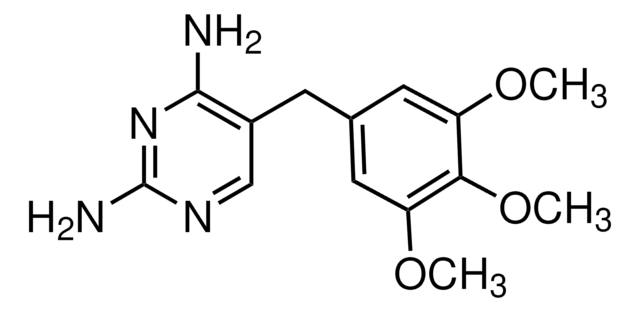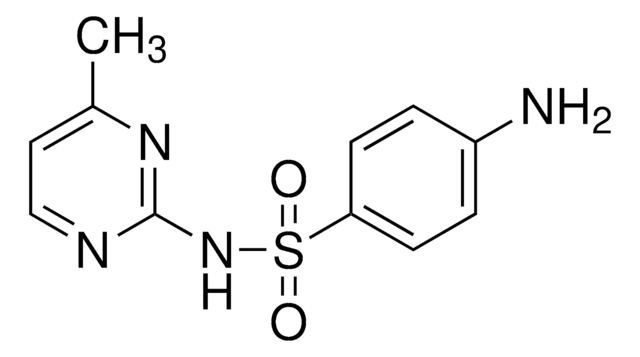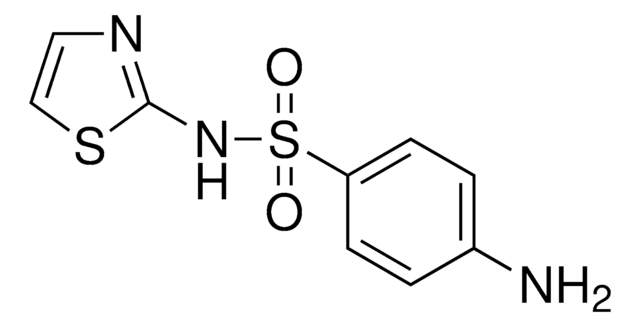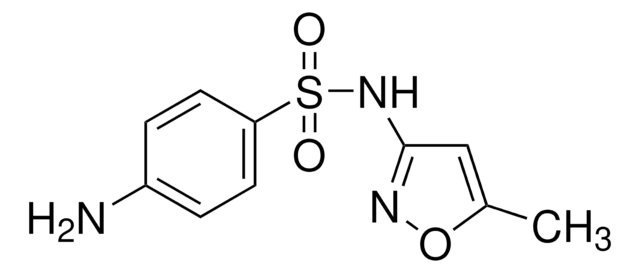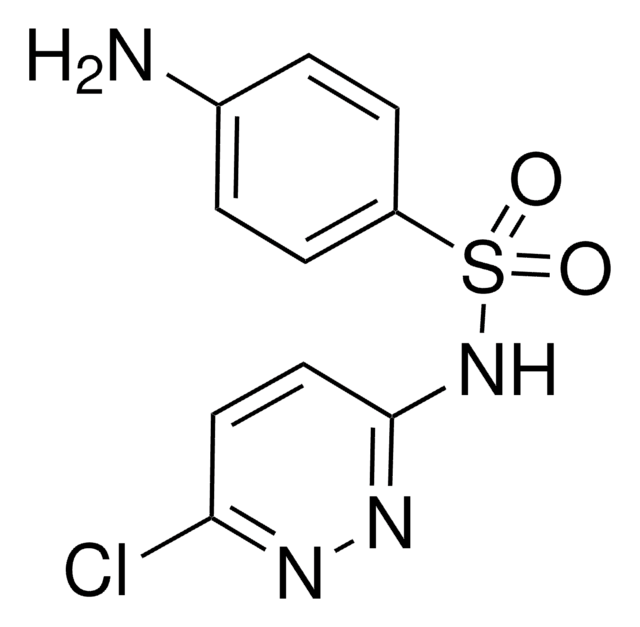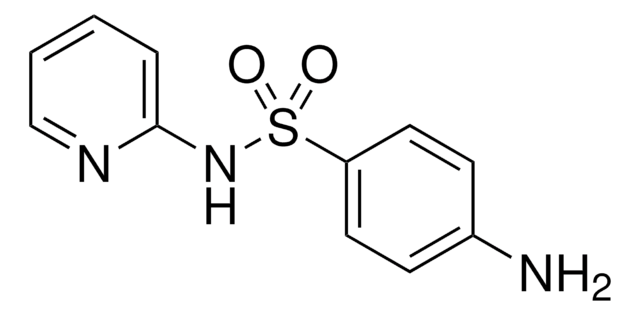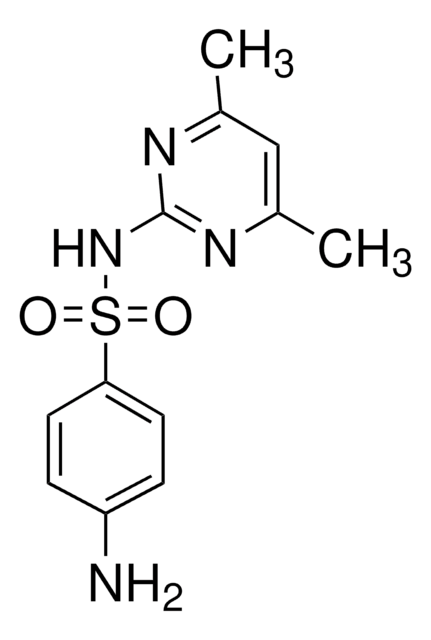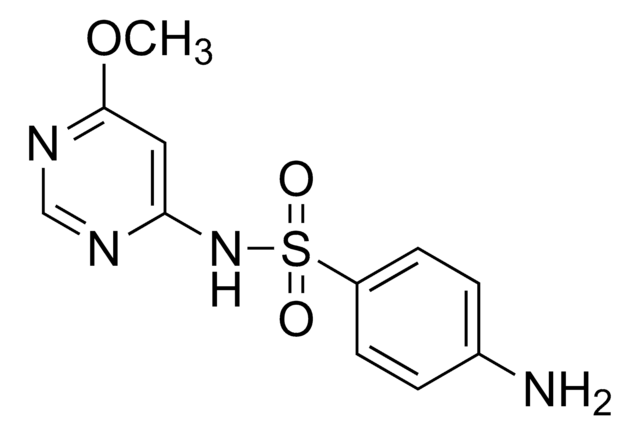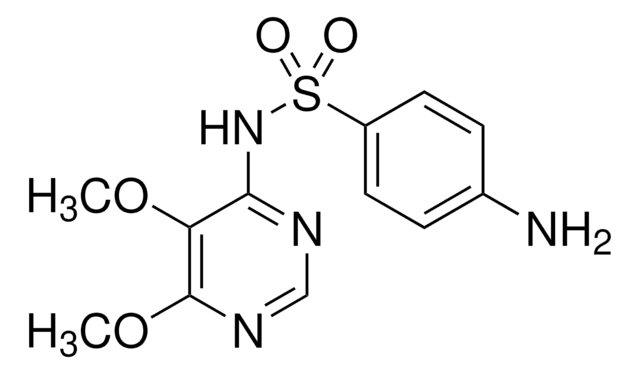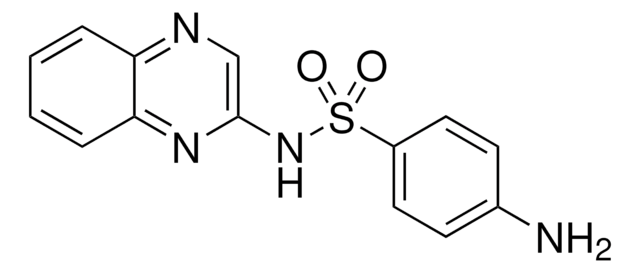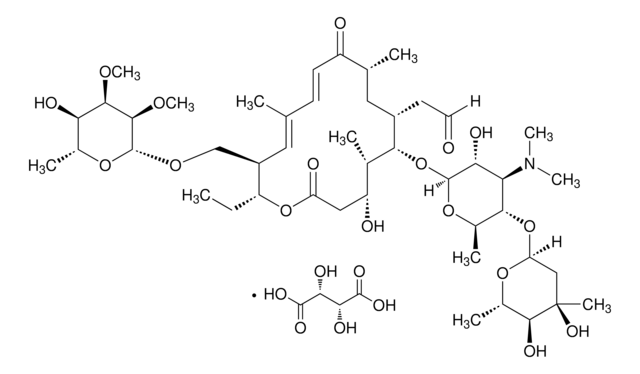46802
Sulfamethazine
VETRANAL®, analytical standard
Sinónimos:
4,6-Dimethylsulfadiazine, 4-Amino-N-(4,6-dimethyl-2-pyrimidinyl)benzenesulfonamide, Sulfadimethyldiazine, Sulfadimidine
About This Item
Productos recomendados
grade
analytical standard
Quality Level
agency
EPA 1694
product line
VETRANAL®
shelf life
limited shelf life, expiry date on the label
technique(s)
HPLC: suitable
gas chromatography (GC): suitable
antibiotic activity spectrum
Gram-negative bacteria
Gram-positive bacteria
application(s)
clinical testing
format
neat
mode of action
DNA synthesis | interferes
enzyme | inhibits
SMILES string
Cc1cc(C)nc(NS(=O)(=O)c2ccc(N)cc2)n1
InChI
1S/C12H14N4O2S/c1-8-7-9(2)15-12(14-8)16-19(17,18)11-5-3-10(13)4-6-11/h3-7H,13H2,1-2H3,(H,14,15,16)
InChI key
ASWVTGNCAZCNNR-UHFFFAOYSA-N
¿Está buscando productos similares? Visita Guía de comparación de productos
General description
Application
Biochem/physiol Actions
Legal Information
Storage Class
11 - Combustible Solids
wgk_germany
WGK 2
ppe
Eyeshields, Gloves, type N95 (US)
Elija entre una de las versiones más recientes:
¿Ya tiene este producto?
Encuentre la documentación para los productos que ha comprado recientemente en la Biblioteca de documentos.
Los clientes también vieron
Nuestro equipo de científicos tiene experiencia en todas las áreas de investigación: Ciencias de la vida, Ciencia de los materiales, Síntesis química, Cromatografía, Analítica y muchas otras.
Póngase en contacto con el Servicio técnico